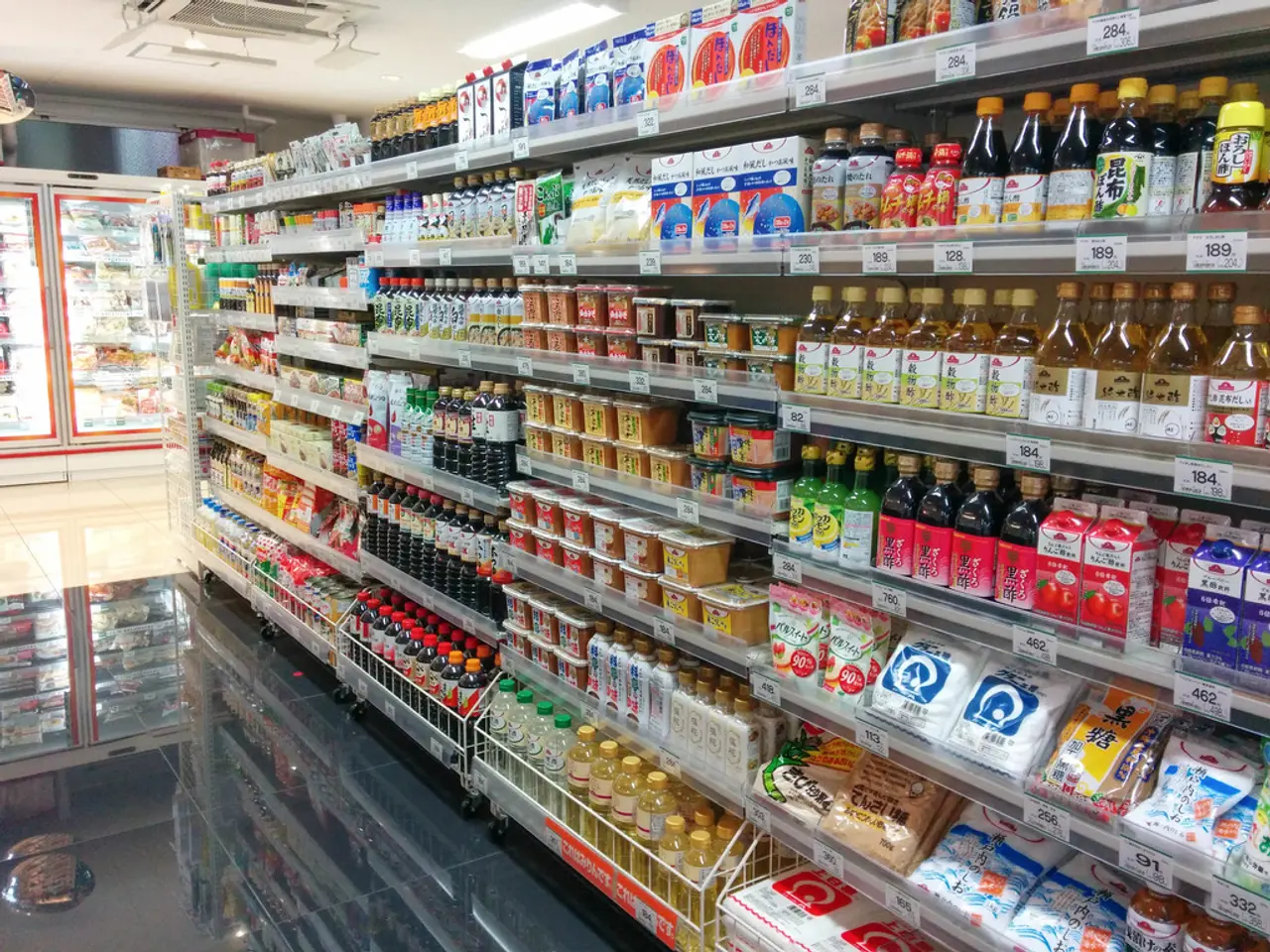Will Bad Bunny and Selena Gomez revitalize America's snacking habits?
In the face of a declining demand for branded snacks in North America, major food companies like Mondelez International, PepsiCo, and General Mills are turning to celebrity partnerships to boost sales and maintain brand relevance [1][3].
Mondelez International, the owner of Ritz and Oreo, is countering a 3.5% revenue drop by collaborating with celebrities. Bad Bunny, a popular Puerto Rican rapper, has partnered with Ritz to appeal to younger, especially Gen Z and Hispanic consumers [1][3]. On the other hand, Oreo has teamed up with Selena Gomez on a limited-edition horchata-inspired cookie, building on prior success with Lady Gaga and Post Malone to drive engagement in younger demographics [1][3].
PepsiCo's Doritos, experiencing a 1% sales decline, launched a new Golden Sriracha flavor promoted in a humorous ad campaign starring actor Walton Goggins. The campaign aims to connect with consumers despite a challenging snack sales environment [1][3].
These celebrity collaborations are viewed by industry experts as strategic tools to maintain brand relevance and justify premium pricing by offering novelty combined with familiar star power [1].
Doritos has released a new "Golden Sriracha" flavor, and Mondelez has hired Bad Bunny for a collaboration to spark sales with the growing Latino demographic. Mondelez is also introducing new flavors for Ritz to attract Gen Z eaters [1][3].
Oreo, another brand owned by Mondelez, has partnered with Selena Gomez to create a cookie inspired by her love of horchata. The partnership between Oreo and Selena Gomez is one of Mondelez International's top three biggest launches for Oreo, but specific numbers have not been disclosed yet [1][3].
It's not just these conglomerates that are leveraging celebrity power. Consumers are increasingly seeing celebrities invest in or endorse snack startups, especially in the vegan/plant-based segment, enhancing product visibility and consumer trust [2]. Rather than full brand ownership, many celebrities prefer endorsement or minority investment roles to leverage star power while minimizing operational complexity [4].
The partnerships often focus on limited-edition "drop" models to create buzz without long-term commitments, aligning with evolving consumer preferences and retail dynamics [4]. As consumers rethink their spending on name brand products, these limited releases or marketing campaigns could help keep a brand in the shopping cart.
References:
[1] "Mondelez International, PepsiCo, General Mills partner with celebrities to boost snack sales." Food Business News. (Date of publication not provided)
[2] "Celebrities Invest in Plant-Based Snack Startups." VegNews. (Date of publication not provided)
[3] "Why Food Companies Are Turning to Celebrity Endorsements." Forbes. (Date of publication not provided)
[4] "The Rise of Limited-Edition 'Drops' in Food Industry." Ad Age. (Date of publication not provided)
- In an attempt to appease evolving consumer preferences and maintain brand relevance, food-and-drink companies like Mondelez International and PepsiCo are collaborating with celebrities to boost sales.
- Aside from major players, consumers are witnessing celebrities investing in or endorsing snack startups, particularly in the plant-based segment, to increase product visibility and consumer trust.
- To cater to changing tastes and support the shifting retail dynamics, food companies are increasingly launching limited-edition "drop" models in collaboration with celebrities, as short-term partnerships can create buzz without long-term commitments and help keep a brand in the lifestyle of consumers.




